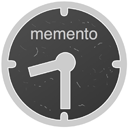News
Travel Time on the Web from W3C Wiki and Specs
31 August 2016 | Archive
The W3C Wiki and the W3C specifications are now accessible using the Memento “Time Travel for the Web” protocol. This is the result of a collaboration with with W3C Member Los Alamos National Laboratory, W3C Systems Team and others.
The Memento protocol is a straightforward extension of HTTP that adds a time dimension to the Web. It supports integrating live web resources, resources in versioning systems, and archived resources in web archives into an interoperable, distributed, machine-accessible versioning system for the entire web. W3C finds Memento work with online reversion history extremely useful for the Web in general and practical application on its own standards to be able to illustrate how they evolve over time. We applaud the effort in this area and are pleased to join the notable ranks of sites deploying it. For more details about this project, please read Herbert Van De Sompel’s guest W3C Blog post Memento at the W3C.
Sensors on the Web: APIs Under Wide Review
30 August 2016 | Archive
The Device and Sensors Working Group has published a Working Draft of the Generic Sensor API, a framework to bring support for any kind of sensors to the Open Web Platform. An updated Working Draft of the Ambient Light API illustrates a concrete sensor API based on this framework.
The Working Group has determined that these APIs are now advanced enough that they would benefit from getting wide review from the broader community and welcome feedback from implementors and developers on both these documents.
First Public Working Draft: Input Events
30 August 2016 | Archive
The Web Platform Working Group has published a Working Draft of Input Events. This specification defines additions to events for text and related input to allow for the monitoring and manipulation of default browser behavior in the context of text editor applications and other applications that deal with text input and text formatting. It builds on the UI events spec.
Call for Review: Pointer Lock Proposed Recommendation Published
30 August 2016 | Archive
The Web Platform Working Group has published a Proposed Recommendation of Pointer Lock. This specification defines an API that provides scripted access to raw mouse movement data while locking the target of mouse events to a single element and removing the cursor from view. This is an essential input mode for certain classes of applications, especially first person perspective 3D applications and 3D modeling software. Comments are welcome through 30 September.
W3C Invites Implementations of its Data on the Web Best Practices
30 August 2016 | Archive
The Data on the Web Best Practices Working Group has published its primary document which is now a Candidate Recommendation. The document provides Best Practices related to the publication and usage of data on the Web designed to help support a self-sustaining ecosystem. Data should be discoverable and understandable by humans and machines. Where data is used in some way, whether by the originator of the data or by an external party, such usage should also be discoverable and the efforts of the data publisher recognized. In short, following these Best Practices will facilitate interaction between publishers and consumers.
As a further aid, the Working Group has also published stable versions of its Data Quality and Dataset Usage vocabularies. Taken together, the three documents address the group’s mission as stated in its charter:
- to develop the open data ecosystem, facilitating better communication between developers and publishers;
- to provide guidance to publishers that will improve consistency in the way data is managed, thus promoting the re-use of data;
- to foster trust in the data among developers, whatever technology they choose to use, increasing the potential for genuine innovation.
Finally, it’s worth noting that the closely related Share-PSI project, co-funded by the European Commission, has concluded its work recently with the publication of a set of high level policy-related Best Practices and guides for the sharing of public sector information online. Although targeted at Europe, the advice, which is available in many languages and contexts, is likely to be applicable world wide.

